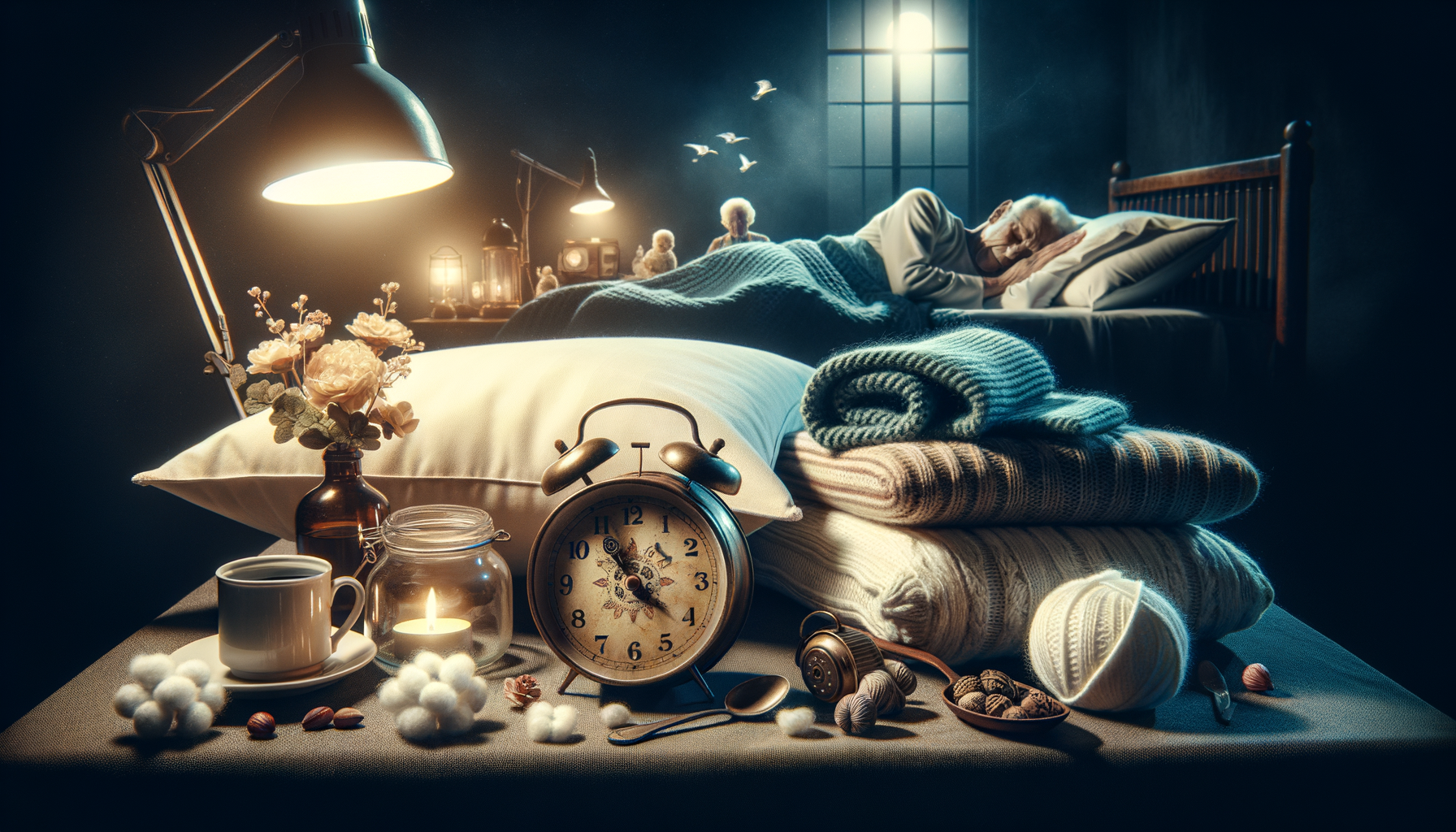Understanding Sleep Disorders in Seniors
Sleep disorders are a common concern among seniors, affecting their quality of life and overall health. As we age, changes in sleep patterns occur naturally, often leading to difficulties such as insomnia, sleep apnea, and restless legs syndrome. Understanding these disorders is the first step towards finding effective solutions.
Insomnia, for instance, is characterized by difficulty falling or staying asleep. It can be caused by various factors including stress, anxiety, or underlying health conditions. Sleep apnea, on the other hand, is a condition where breathing repeatedly stops and starts during sleep, often leading to disrupted rest. Restless legs syndrome causes an uncontrollable urge to move the legs, typically in the evenings, impacting the ability to fall asleep.
Recognizing the symptoms of these disorders is crucial. Common signs include excessive daytime sleepiness, loud snoring, and frequent awakenings during the night. If you or a loved one experience these symptoms, it might be time to seek professional advice. Proper diagnosis and treatment can significantly improve sleep quality and overall well-being.
Non-Medical Treatments for Better Sleep
Non-medical treatments offer a natural approach to managing sleep disorders, often preferred by those who wish to avoid medication. These methods focus on lifestyle changes and behavioral therapies to enhance sleep quality.
One effective strategy is maintaining a consistent sleep schedule. Going to bed and waking up at the same time each day helps regulate the body’s internal clock. Additionally, creating a relaxing bedtime routine can signal the body that it’s time to wind down. This might include activities such as reading, listening to calming music, or practicing relaxation techniques like deep breathing or meditation.
Environmental factors also play a significant role. Ensuring a comfortable sleep environment—cool, quiet, and dark—can make a substantial difference. Investing in a supportive mattress and pillows can further enhance comfort and support during sleep.
Behavioral therapies, such as cognitive behavioral therapy for insomnia (CBT-I), have shown promising results. This therapy helps individuals change negative thoughts and behaviors that contribute to sleep problems, promoting healthier sleep patterns.
Medical Interventions for Sleep Disorders
While non-medical treatments are beneficial, some individuals may require medical interventions to manage their sleep disorders effectively. These interventions are often considered when lifestyle changes alone do not yield the desired results.
Medications, such as sleep aids, can be prescribed to help with insomnia. These are typically used for short-term relief and under the guidance of a healthcare professional to avoid dependency and side effects. For sleep apnea, continuous positive airway pressure (CPAP) therapy is a common treatment. This involves wearing a mask that delivers air pressure to keep the airways open during sleep.
In some cases, surgery might be considered, particularly for severe sleep apnea. Procedures can include removing excess tissue from the throat or repositioning the jaw to improve airflow.
It’s essential to consult with a healthcare provider to determine the most appropriate treatment plan, as they can tailor interventions to suit individual needs and medical histories.
Diet and Exercise: Their Role in Sleep Health
Diet and exercise are pivotal in promoting healthy sleep patterns. What we eat and how we move throughout the day can significantly impact our ability to fall and stay asleep.
A balanced diet rich in fruits, vegetables, lean proteins, and whole grains supports overall health and can improve sleep quality. It’s advisable to avoid heavy meals, caffeine, and alcohol close to bedtime, as they can disrupt sleep. Instead, opt for sleep-friendly snacks like a small bowl of oatmeal or a banana, which contain nutrients that promote relaxation.
Regular physical activity is equally important. Engaging in moderate exercise, such as walking, swimming, or yoga, can help reduce stress and tire the body, making it easier to fall asleep. However, it’s best to avoid vigorous exercise close to bedtime, as it can have the opposite effect by energizing the body.
Incorporating these dietary and exercise habits into daily routines can lead to significant improvements in sleep health, contributing to a more restful and rejuvenating night’s sleep.
When to Seek Professional Help
While many sleep issues can be managed with lifestyle changes and home remedies, there are times when professional intervention is necessary. Recognizing when to seek help is crucial in preventing long-term health consequences associated with sleep disorders.
If sleep problems persist despite trying various self-help strategies, it may be time to consult a healthcare provider. Chronic sleep deprivation can lead to serious health issues, including heart disease, diabetes, and depression. A sleep specialist can conduct a thorough evaluation, which may include a sleep study to diagnose specific disorders and recommend appropriate treatments.
Additionally, if sleep disturbances are affecting daily activities, mood, or concentration, professional guidance can provide the support needed to regain restful sleep. Early intervention not only improves sleep quality but also enhances overall quality of life.
In conclusion, understanding and addressing sleep disorders is essential for maintaining health and well-being, especially for seniors. With the right approach, sweet dreams are within reach.




Leave a Reply